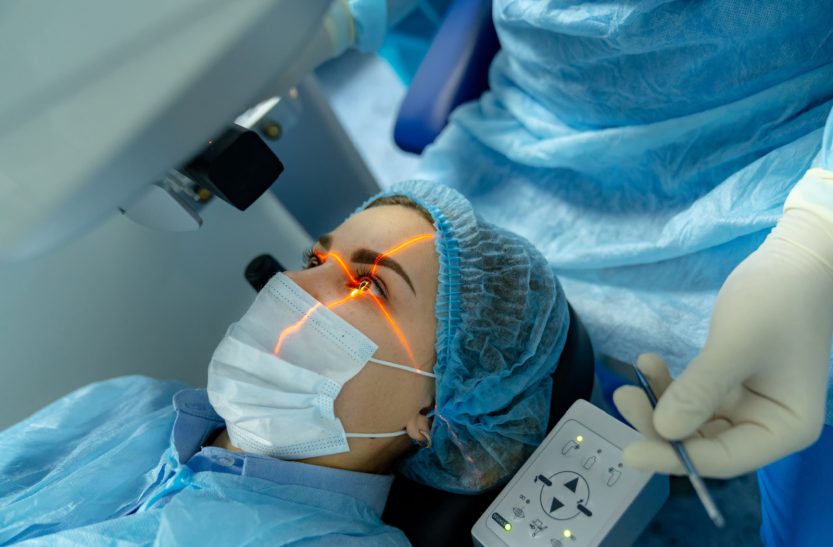

LASIK eye surgery has become a popular choice for vision correction, with procedures performed in both hospital settings and private clinics. This article examines the legal distinctions between these two environments, providing valuable insights for those considering LASIK surgery.
Licensing and Accreditation
Both hospitals and private clinics must meet strict licensing requirements to perform LASIK surgery. However, there are some notable differences:
Hospitals typically hold broader accreditations covering a wide range of medical services.
Private clinics often possess specialized accreditations specific to eye procedures, including LASIK.
These differing accreditation scopes can impact the legal framework within which each facility operates.
Liability Coverage
The extent of liability coverage can vary between hospitals and private clinics:
Hospitals generally maintain more extensive liability coverage due to the broader range of procedures they perform.
Private clinics, while still insured, may have more focused coverage specific to ophthalmological procedures.
This difference could potentially affect the resources available in the event of a malpractice claim.
Informed Consent Process
The informed consent process is a critical legal requirement in both settings. However, the approach may differ:
Private clinics, being more specialized, often provide more detailed, LASIK-specific information in their consent forms.
Hospitals may have a more generalized approach to informed consent, given their diverse range of medical procedures.
It’s important to note that regardless of the setting, patients have the right to comprehensive information about the procedure, its risks, and potential outcomes.
Emergency Resources
The availability of emergency resources can have legal implications:
Hospitals typically have immediate access to a wide range of medical specialties and emergency facilities.
Private clinics, while well-equipped for ophthalmological emergencies, may need to transfer patients in case of non-eye-related complications.
This difference could be relevant in discussions of duty of care and the facility’s ability to handle unexpected situations.
Physician-Patient Relationship
The nature of the physician-patient relationship can vary between settings:
In private clinics, patients often have more direct, ongoing relationships with their surgeons.
Hospitals may have a rotating staff, potentially affecting the continuity of care.
These differences can impact legal considerations surrounding communication, follow-up care, and the handling of any post-surgical issues.
Malpractice Claims
The process of filing and handling malpractice claims may differ:
Hospitals often have more extensive legal departments and established protocols for handling such claims.
Private clinics may handle claims on a more individual basis, potentially leading to a different legal approach.
It’s important to note that the standard of care required is the same regardless of the setting.
Regulatory Oversight
Both hospitals and private clinics are subject to regulatory oversight, but the specific bodies involved may differ:
Hospitals are often subject to broader healthcare regulations and inspections.
Private clinics may face more specialized oversight focused on outpatient and ophthalmological procedures.
This can affect the legal framework within which each facility operates and complies with regulations.
Conclusion
While there are legal distinctions between LASIK performed in hospitals versus private clinics, the fundamental requirements for patient safety, informed consent, and quality of care remain consistent across both settings. The choice between a hospital and a private clinic should be based on various factors, including the patient’s medical history, the complexity of the procedure, and personal preferences.
Ultimately, the legal differences, while noteworthy, are secondary to the skill and experience of the surgeon performing the procedure. Prospective LASIK patients are advised to thoroughly research their options, carefully review all provided documentation, and consult with qualified medical professionals before making a decision.
For the most current and specific legal information regarding LASIK procedures, it is recommended to consult with legal and medical professionals specializing in this area.
Copyright 2017 - BGS Law : Expert Legal Advice